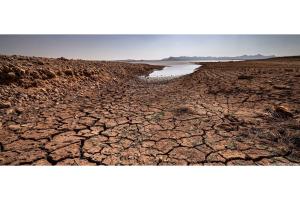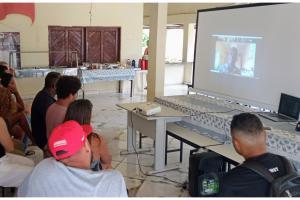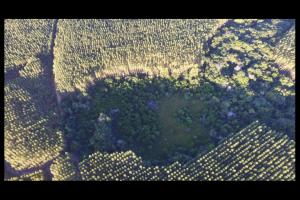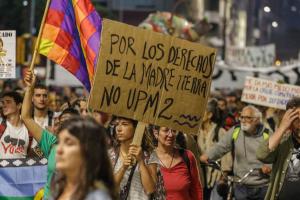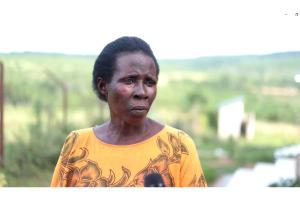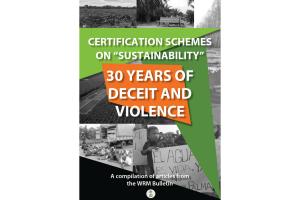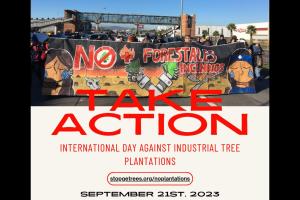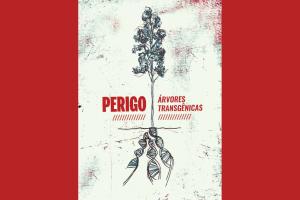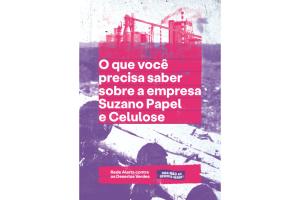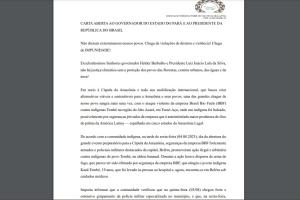More than seven percent of Uruguay's territory is covered with monoculture tree plantations. A handful of companies have been behind this massive expansion—which has occurred mostly over watersheds and prairies—,with devastating consequences. This year, almost half of the urban population had no access to drinking water—an imminent warning of the drastic change that is needed for Uruguay to maintain its water.
Large-Scale Tree Plantations
Industrial tree plantations are large-scale, intensively managed, even-aged monocultures, involving vast areas of fertile land under the control of plantation companies. Management of plantations involves the use of huge amounts of water as well as agrochemicals—which harm humans, and plants and animals in the plantations and surrounding areas.
Bulletin articles
25 October 2023
Bulletin articles
25 October 2023
Exchanges between activists put the voices of those who fight to defend their territories at the center of the conversation. In September, members of communities from Brazil and Mozambique united their struggles and connected their histories once again, helping to strengthen solidarity in the fight against industrial tree plantations.
Other information
25 October 2023
The network released an open letter in which it denounces the impacts of the plantations and the crimes committed by the companies. At the same time, they demand reparation and reaffirm resistance against tree monocultures.
Other information
25 October 2023
One of the pulp plants of the Finnish company UPM spilled one million liters of caustic soda into the Sauce stream, a tributary of the Negro River, in Uruguay.
Other information
25 October 2023
The video "Uganda: Resisting Industrial Oil Palm Plantations" is now available in Bahasa Indonesian. It highlights the resistance of communities in Buvuma Island, in Uganda, where the Bidco company (partially owned by the transnational Wilmar company) is trying to expand its oil palm plantations.
Other information
25 October 2023
Alamindo Lestari Sejahtera (ALS) Group, that owns and controls at least three timber companies and industries in Papua, is expanding the business of timber forest products exploitation in the customary area of the Moi Tribe through a company called PT Hutan Hijau Papua Barat (HHPB).
Publications
25 October 2023
This compilation of articles from the WRM Bulletin aims to underscore the damaging role played by companies and organizations involved in certification schemes.
Action alerts
21 September 2023
Sign the letter in support of Indigenous and local communities devastated by the social and ecological impacts of industrial tree plantations, and threatened by the planned future use of GMO tree plantations.
Publications
15 September 2023
In this booklet we share basic information about GE trees, in particular about seven varieties of eucalyptus trees that have already been approved in Brazil. This is the first country besides China to approve the large-scale use of GE trees.
Publications
21 August 2023
Suzano is a Brazilian multinational company that produces cellulose and paper products from eucalyptus plantations. Read this booklet produced by the ‘Alert Against the Green Desert’ Network and find out important facts that are often hidden by this mega-company’s propaganda machine.
Multimedia
11 August 2023
Tembé indigenous leaders shot by private security forces (only available in Portuguese).
Articles
11 August 2023
Your Excellencies Governor Helder Barbalho and President Luiz Inácio Lula da Silva, there is no climate justice without the protection of two forests, urban centers, water and land! (Only available in Portuguese).
